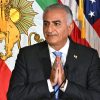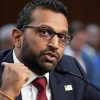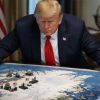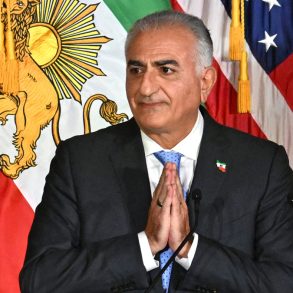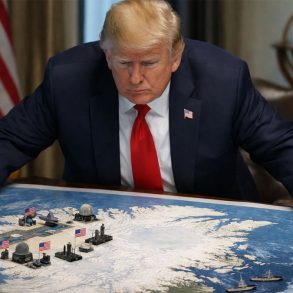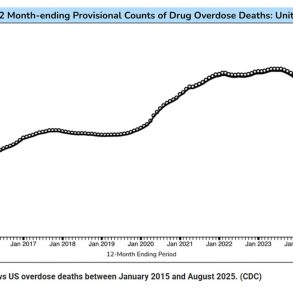When President Donald Trump announced a breakthrough peace deal to end the Gaza war, it was clear that one figure had reemerged as a driving force behind the scenes: Jared Kushner. His son-in-law and once senior adviser, Kushner had promised to retreat from politics after the first Trump term. Yet, as world leaders prepare to sign the new 20-point Gaza peace plan in Egypt, insiders say the blueprint bears Kushner’s unmistakable imprint.
Kushner, 44, is married to Ivanka Trump and has long been one of the most influential voices in Donald Trump’s orbit. During the first Trump administration, he was instrumental in negotiating the 2020 Abraham Accords, which normalized relations between Israel and several Arab states. That experience, and his deep network of relationships across the Middle East, have now positioned him as a central architect of Trump’s latest bid for “eternal peace” in the region.
The Power Behind the Apology
The turning point in the Gaza deal came on September 29, when Trump demanded that Israeli Prime Minister Benjamin Netanyahu apologize to Qatar for a missile strike that had endangered peace talks. Inside the Oval Office, Kushner reportedly stood next to Trump as Netanyahu reluctantly phoned Qatari Prime Minister Mohammed bin Abdulrahman Al Thani to deliver the apology Kushner and envoy Steve Witkoff had helped craft.
That moment, according to senior officials, was quintessential Kushner—calm, strategic, and persuasive. Hours later, Trump and Netanyahu appeared together in the State Dining Room to unveil a peace framework that Kushner and Witkoff had been refining for months.
“You don’t find anybody more capable,” Trump told reporters as he praised his son-in-law before sending him to Egypt to complete negotiations for the deal’s first phase—an exchange of hostages and prisoners, followed by a ceasefire.
The Signature of the Abraham Accords
For seasoned observers, Kushner’s reemergence carries echoes of his earlier success. During Trump’s first term, he orchestrated the Abraham Accords by bridging gaps between Israel and Arab states like the UAE and Bahrain. His ability to leverage trust among regional leaders is now seen as essential to the Gaza plan’s progress.
“There’s a symmetry between us,” Witkoff said of his partnership with Kushner. “When things got tough and we ran into brick walls, every time that happened, we just said, let’s make a new plan. Let’s try again.”
The new 20-point plan includes a transitional governance board chaired by Trump and supported by an international “Board of Peace,” with former British Prime Minister Tony Blair slated to help oversee Gaza’s reconstruction. The plan also envisions a “Riviera of the Middle East”—a vision that could turn war-torn Gaza into an economic hub, with Kushner and Witkoff already in talks with developers.
A Speech that Moved Tel Aviv
On the eve of the peace summit, Kushner stood before thousands in Hostages’ Square in Tel Aviv, where he delivered an emotional address. “October 7 was a shattering day,” he said, recalling Hamas’s deadly 2023 attack. “Since then, my heart has not been complete, and it’s been a tremendous burden that I’ve felt to see these hostages come home.”
He expressed empathy for both sides of the conflict, saying he wanted to see “the suffering end for the people in Gaza, who for most of them were experiencing this through no fault of their own other than being born into a situation that was horrific.”
In closing, Kushner praised Israel’s restraint: “Instead of replicating the barbarism of the enemy, you chose to be exceptional. You chose to stand for the values that you stand for, and I couldn’t be prouder to be a friend of Israel.”
Behind the Curtain of Power and Profit
Kushner’s involvement, however, hasn’t come without scrutiny. His investment firm, Affinity Partners, launched after Trump’s first term, has drawn billions in funding from Saudi Arabia, Qatar, and the UAE—the very countries now central to the Gaza deal.
Affinity recently made headlines with a record-setting $55 billion buyout of Electronic Arts, backed by the Saudi Public Investment Fund and Silver Lake. Critics argue that such business entanglements blur the line between diplomacy and profit.
House Oversight Chairman James Comer once called the firm’s funding “across the line of ethics,” though Kushner has defended his conduct. “I don’t think anyone’s ever said that I’ve broken any rules,” he told The Wall Street Journal, adding that he has been “very scrupulous” in following the law.
White House press secretary Karoline Leavitt went further, calling criticism of Kushner’s role “despicable,” insisting that “Jared is donating his energy and his time to our government, to the president of the United States, to secure world peace.”
Kushner’s Continuing Influence
Though he holds no official government position, Kushner has continued to advise key officials in Trump’s circle, including Commerce Secretary Howard Lutnick and Treasury Secretary Scott Bessent. He’s also helped navigate trade discussions with China and consulted on domestic policy issues.
His fingerprints are visible across Trump’s foreign and economic agenda, earning him a reputation as both strategist and confidant. Former U.S. ambassador to Israel Thomas Nides, who served under the Biden administration, acknowledged Kushner’s skill despite political differences: “He was exceptionally important in the Abraham Accords, knows how to manage Bibi, and understands the Arab countries. Forget my politics—I’m more than happy to give him as much credit as he deserves.”
As the world turns its attention to Sharm el-Sheikh, where Trump and Egyptian President Abdel Fattah el-Sissi will host the official signing of the Gaza deal, Kushner is once again at the center of history.
He has been photographed alongside Trump, Netanyahu, and Egyptian officials in the final hours before the summit—quiet, polished, and confident. The ceasefire may be fragile, but for Trump and Kushner, it marks another defining chapter in a long partnership built on loyalty, ambition, and a shared belief in the power of dealmaking.
In his own words from Tel Aviv: “Let’s do our best to make Israel, to make the region, to make the world as peaceful as possible… to build bridges of understanding, to eliminate hatred, and to lead with love.”
Whether this deal endures or falters, few doubt that Jared Kushner has once again left his mark—both on the peace process and on his father-in-law’s presidency.

